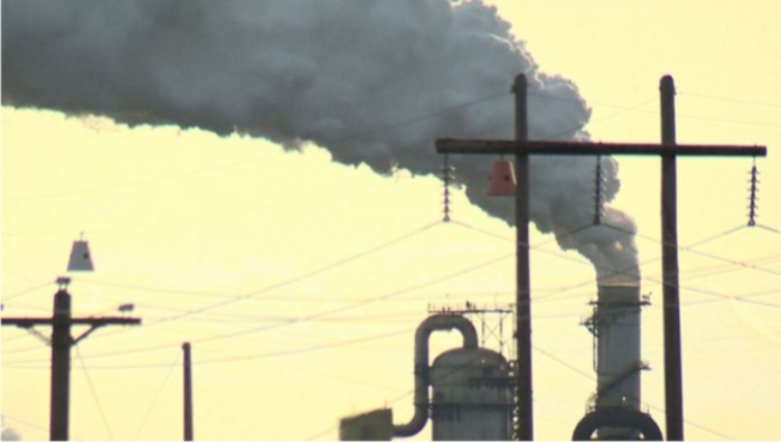11 Dec 2024

Tired Earth
By The Editorial Board

Canada is largely unscathed by the deadly consequences of pollution compared to its global peers, according to a major study that found more people around the world are killed every year from environmental factors than war, hunger, natural disasters and smoking combined.
The research published in The Lancet medical journal on Thursday suggests one out of every six deaths in 2015 – approximately 9 million -- was linked to pollution. Most were found to have died of non-communicable diseases such as heart disease, stroke, lung cancer and chronic obstructive pulmonary disease.
The report marks the first attempt to examine the cumulative impact of all forms of pollution on death and disease.
Air pollution was found to be the largest contributor to early death by far, accounting for 6.5 million fatalities in 2015. Water pollution, responsible for 1.8 million deaths, and workplace-related pollution (0.8 million), was also ranked among the most significant risks.
Canada was found to have one of the lowest proportions of death attributable to pollution, 5.31 per cent in 2015. Only six countries ranked better: Trinidad and Tobago, New Zealand, Barbados, Finland, Sweden and Brunei.
The United States, meanwhile, is ranked five spots above Canada, with pollution accounting for 5.74 per cent of deaths.
“Canada is right down the bottom amongst the rest of the West. This is really a problem of low and middle-income countries,” Richard Fuller, co-chair of The Lancet Commission on Pollution and Health, told CTV News Channel in an interview from New York.
While the state of government stewardship over the environment, and regulation of the industries that cause it harm, are under constant public scrutiny in most western nations, Fuller said that is not the case in much of the world. He said Canadian and U.S. pollution policing policies are advanced in that respect.
“We’ve had great laws and great governance to manage them over the last several decades,” he said.
The overwhelming majority of premature deaths, 92 per cent, impacted those living in low and middle-income nations. Rapidly industrializing states such as India, China, Bangladesh, and Kenya were also hard hit by the health impacts of contaminated water, air, and soil.
Bangladesh saw the largest proportion of deaths tied to pollution (26.57 per cent) in 2015, closely followed by Somalia, Chad, Niger, and India. The largest number of deaths attributable to pollution per 100,000 people was found in Somalia, followed by the Central African Republic, Chad, and South Sudan.
The report did not give Canada an entirely glowing review, highlighting pockets of concern in northern Alberta and Ontario that negatively impact First Nations communities through oil and natural gas exploration and production as well as chemical manufacturing.
Fuller said Canada’s admirable rank among the nations whose collective health is least affected by pollution should not be misinterpreted as proof that Canadians are immune to the consequences of environmental damage.
“These toxins, they don’t respect political boundaries. They travel the air and waters of the world,” he said. “As much as 20 per cent of pollution in Los Angeles is coming from coal fields in China.”
Kaitlyn Mitchell, an environmental advocate with Ecojustice, told CTV’s Power Play that she believes Canada’s laws could be improved considering that an estimated 7,700 Canadians die annually due to poor air quality.
Minister of Environment and Climate Change Catherine McKenna told Power Play that her government is fighting pollution by phasing out coal-fired electricity, reducing methane leaks from oil production and investing in public transit.
“Internationally it’s quite clear from the report that we need to be stepping up and supporting countries that need assistance,” McKenna added. “We’ve committed $2.65 billion dollars to help countries move to a cleaner future.”
Source : www.ctvnews.ca
Comment